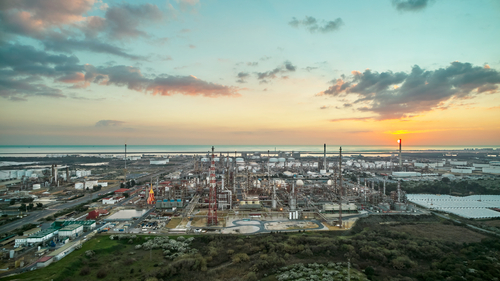
Cepsa, an energy company, plans to build a second-generation (2G) biofuels plant in Palos de la Frontera, Spain, with an investment of up to €1 billion. The plant will produce renewable diesel and sustainable aviation fuel from organic waste, creating 1,600 jobs during construction. The use of biofuels can reduce CO2 emissions by up to 90% compared to traditional fuels, supporting the energy transition and decarbonization of transport. Cepsa aims to become a leader in 2G biofuels in Spain and Portugal, with an annual production target of 2.5 million tons by 2030. The project aligns with the company's strategy to achieve net-zero emissions by 2050.
- The project, which will be located in the 'La Rábida' Energy Park in Palos de la Frontera, will generate 1,600 jobs during its construction.
- Second-generation (2G) biofuels will be manufactured from organic waste, such as used cooking oils or agricultural waste, thus promoting the circular economy
- The plant will produce sustainable fuels for aviation, maritime and land transport, enabling CO2 emissions to be reduced by up to 90%.
- The project reinforces the implementation of its new strategy, Positive Motion, with which the company expects to become the leader in 2G biofuels in Spain and Portugal, reaching an annual production of 2.5 million tons by 2030.
Cepsa will build a new second-generation (2G) biofuels plant in Palos de la Frontera, Huelva, which will involve an investment of up to 1 billion euros. This new plant, which will be located in the 'La Rábida' Energy Park, will produce both renewable diesel and SAF (sustainable aviation fuel) and will create up to 1,600 direct and indirect jobs during its construction phase.
The 2G biofuels will be made from organic waste, such as used cooking oils and agricultural waste, among others. These biofuels promote the circular economy by using waste for their production that would otherwise end up in landfills.
The use of biofuels can reduce CO2 emissions by up to 90% compared to traditional fuels, making them a key element in advancing the energy transition and promoting the decarbonization of transport, especially in sectors where electrification is very complex, such as heavy road, air and maritime transport.
The construction of this new plant responds to the company's objective of becoming a benchmark in the energy transition in this decade, and to lead the manufacture of biofuels in Spain and Portugal, with an annual production of 2.5 million tons, of which 800,000 tons will be PBS. As part of its 2030 strategy, Positive Motion, Cepsa is promoting the development of an ecosystem focused on accelerating its decarbonization and that of its customers, through the production of green molecules, mainly renewable hydrogen and biofuels.
In its strategic plan, the company has established an ambitious roadmap to cut its emissions, placing it among the benchmark companies in its sector. Specifically, by 2030, it will reduce its CO2 emissions (Scope 1 and 2) by 55% and its carbon intensity index by 15-20%, with the aim of achieving net zero emissions by 2050. Cepsa wants to go beyond net zero and achieve a positive impact, adding value in the communities where it is present by enabling its customers and other stakeholders to move in the right direction.
The development and use of biofuels contributes to several of the Sustainable Development Goals of the 2030 Agenda: SDG 7 (Affordable and clean energy), SDG 8 (Decent work and economic growth), SDG 12 (Responsible production and consumption) and SDG 13 (Climate action).